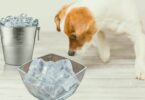Waffles are incredibly delicious, right?! They are one of the most popular breakfast foods in American households. Not only can they be enjoyed as a sweet dessert, topped with various goodies like nuts, chocolate, and fruits, but they also make a delightful treat for our furry friends. However, we need to be cautious about feeding dogs waffles and consider their safety.
Canine Diet Considerations
When it comes to dogs eating waffles, it’s important to ensure that they are safe and suitable for their consumption. Homemade waffles made with simple ingredients like oat flour or whole wheat flour can be a healthier option compared to store-bought frozen waffles. Plain waffles without any artificial sweeteners or toxic ingredients are the best choice for dogs.
Before serving waffles to your dog, it’s crucial to consider their regular diet and daily nutritional needs. Adding waffles to a dog’s regular diet can lead to unhealthy weight gain and potentially cause heart disease or other health issues. It’s essential to keep the serving size in moderation and avoid giving more than one waffle to your furry friend.
Potential Health Risks and Ingredients to Avoid

While waffles may be tempting to share with your dog, it’s important to be mindful of certain ingredients that can be harmful to them. Chocolate, sugar, and artificial sweeteners are toxic to dogs and should be avoided. These ingredients can cause serious health problems and even be fatal to dogs.
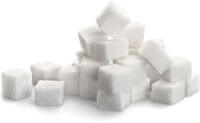
If you want to make dog-friendly waffles, you can modify the recipe by using dog-safe ingredients. Consider using ingredients like oat flour or whole wheat flour and avoid adding toxic ingredients. Remember to cook the waffles thoroughly and let them cool before serving them to your dog.
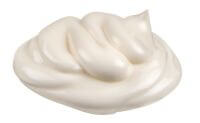
It’s also important to note that not all dogs can tolerate waffles, especially those who are lactose intolerant or have dietary restrictions. Always consult with your veterinarian before introducing new foods to your dog’s diet.

Ingredients of a waffle
Let’s dive into what each ingredient could bring in terms of benefits or drawbacks for our furry friends.
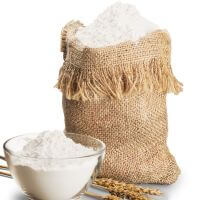
• Wheat flour:
Wheat flour itself is not harmful to our doggies, but it doesn’t bring any significant benefits either. In terms of nutritional value, it is a relatively poor food for dogs.
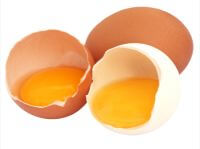
• Eggs:
This ingredient in the waffle recipe can be safely consumed by our furry friends, as long as they are cooked properly. Reminder: raw eggs should never be given to dogs.
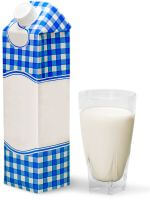
• Cow’s milk:
Cow’s milk is not advisable for dogs, including puppies. One of the reasons is that puppies can develop lactose intolerance, leading to various gastrointestinal issues. Another reason is that cow’s milk doesn’t bring any significant benefits to their diet and only adds unnecessary fat and calories.
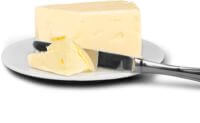
• Butter:
Unfortunately, this is another ingredient in the waffle recipe that is harmful to our furry friends. Butter is made from the fatty part of cow’s milk and lacks any nutritional value. Moreover, apart from butter, any other highly fatty food can cause serious problems such as diabetes, respiratory difficulties, heart diseases, as well as pancreatitis and obesity. Avoid it at all costs!
Geez, it’s becoming more and more doubtful that dogs can eat waffles, right? But hey, let’s keep examining the ingredients.


• Sugar:
Sugar, even when given in small portions and occasionally, can end up harming your little dog’s health. One of the main reasons is the development of diabetes. Sugar itself is not entirely bad for humans. Contrary to what one might think, it is not completely devoid of nutrients, such as minerals and vitamins. However, the more refined it is, the more it loses these nutrients. However, there is no need to introduce it into the diet of our furry friends since it is already present in other foods like fruits and vegetables that we serve them. Avoid it!
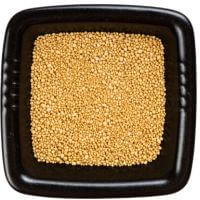
• Yeast:
Obviously, we can’t consider yeast in its pure form here because, obviously, dogs can’t eat yeast. But what about when it’s mixed into the dough? As long as it’s properly baked or cooked, yeast won’t harm the little pup. Remember: never offer raw dough with yeast to dogs. The dough will continue to ferment in the dog’s stomach and can cause abdominal distension. Moreover, fermentation releases ethanol, a toxic substance for dogs.
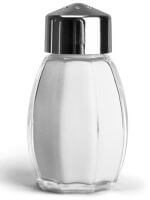
• Salt:
Salt, in moderation, doesn’t harm dogs. In fact, they actually need a slightly higher dose of sodium than humans, as it’s an essential ingredient for their body to function properly. Of course, there are exceptions, such as dogs with kidney disease or other health issues.
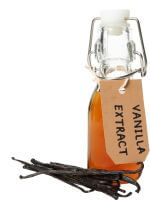
• Vanilla extract:
Pure vanilla itself doesn’t cause any harm to your dog, but the extract uses alcohol in its processing, which makes vanilla extract prohibited for pets.

Can dogs eat waffles after all? What can we call dog waffles?
After careful consideration of the ingredients found in this beloved treat, the conclusion is: can dogs eat waffles? The answer remains a firm NO! The ingredients are difficult for our furry friends to digest and can cause digestive issues, weight gain, and food intolerances. There is also the risk of the use of xylitol in the preparation, an artificial sweetener that is extremely toxic to dogs.
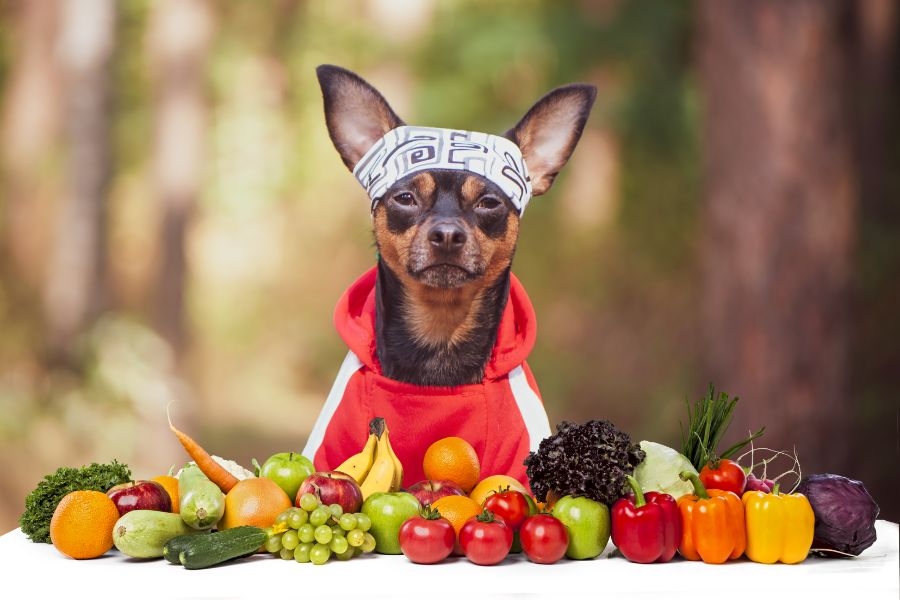
Proper nutrition for dogs
The health and well-being of our beloved canine companions rely heavily on a balanced and healthy diet. The food we provide them should contain the necessary nutrients for their growth, energy, and immune function.
On our website, you’ll find a variety of articles about balanced and healthy nutrition. We cover topics such as the benefits of natural dog food for dental health, achieving shiny and silky fur, and the debate between raw and cooked food. These articles provide valuable insights into what dogs can and cannot eat.
Considerations Regarding Dog Treats
When it comes to waffles, it’s important to note that most waffles contain ingredients that can be toxic to dogs. Waffles with chocolate, sugar, or toxic ingredients should never be given to dogs. However, plain homemade waffles without toxic ingredients can be a part of a dog’s daily diet in moderation. It is crucial to ensure that the waffles are prepared without ingredients that are harmful to dogs, such as baking powder.
While some dogs may enjoy plain waffles, it’s important to remember that waffles should not be a regular part of a dog’s diet. They are high in calories and can contribute to dental issues if consumed frequently. If a dog accidentally eats a waffle, especially one with toxic ingredients like chocolate, it is important to monitor them closely for any signs of distress or illness. In such cases, it’s best to consult a veterinarian.
It’s essential to prioritize the nutritional benefits and health of our dogs, even when it comes to tempting treats like waffles.
Final Thoughts
Can dogs eat waffles? In conclusion, while it’s generally safe for dogs to enjoy waffles in moderation, it’s crucial to take into account the ingredients and nutritional benefits.Avoid giving waffles that contain toxic ingredients such as chocolate or excessive sugar, as they can be harmful to dogs and may even cause serious health issues or death. If your dog ate waffles, monitor their overall health and well-being closely.
If you have any questions about how to incorporate waffles into your dog’s regular diet or the potential health benefits of waffles for dogs, you’ve come to the right place. However, it’s crucial to note that not all waffles are suitable for dogs, especially those with toxic ingredients. Always prioritize your dog’s health and consult with a veterinarian to determine if waffles can be a part of their diet.






